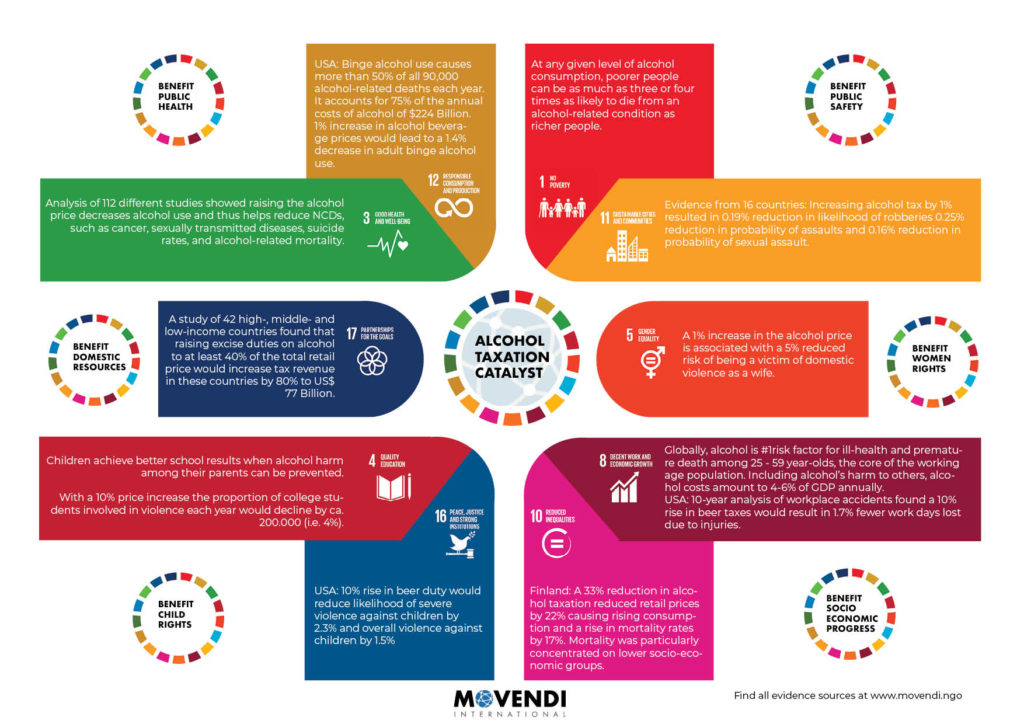Harnessing the Power of Alcohol Taxation
There is strong and growing evidence that pro-health taxes on health harmful products, such as tobacco, alcohol, and sugar-sweetened beverages, are highly impactful and yield significannt return on investment.
A landmark study confirmed this in 2020:
Excise tax increases on tobacco, alcohol and SSB can produce substantial health gains by reducing premature mortality while raising government revenues, which could be used to increase public health funding.”
Summan A, Stacey N, Birckmayer J, et. al. The potential global gains in health and revenue from increased taxation of tobacco, alcohol and sugar-sweetened beverages: a modeling analysis. BMJ Global Health 2020
The Philippines government reaped the benefits of alcohol taxation by using the taxes to partially fund their Universal Health Coverage (UHC) program. Aided by alcohol taxes the Philippines UHC program was able to deliver comprehensive health and social services for citizens amidst the COVID-19 pandemic and the global economic crisis.
Meanwhile, in Poland, the government implemented a surcharge on small alcohol bottles last year and a tax increase at the beginning of this year to reduce alcohol harm. Already Poland is seeing results with reduced alcohol volumes sold in the country.
A growing body of evidence shows that alcohol taxation holds massive potential for global health, for helping achieve the sustainable development goals and also for significantly contributing to financing health and development.
The most cost-effective measures to prevent and reduce alcohol harm remain price interventions, especially through taxation.

Implementing alcohol taxation measures reaps a triple positive effect:
1. Domestic resource mobilization
Alcohol taxation generates government revenue for financing development and health promotion.
2. Reducing the health and development burden
Alcohol taxation reduces population level alcohol use and thus reduced the overall public health, social and economic harm caused by the products and practices of the alcohol industry.
3. Prevention of alcohol initiation and health promotion
Alcohol taxation helps maintain high-levels of alcohol abstention rates in low- and middle income countries.
The latest Financing for Sustainable Development report by the UN Inter-Agency Task Force highlights the importance of alcohol taxation.
The products and practices of the alcohol industry drain precious resources from countries around the world. These heavy health, social, and economic costs are even more harmful harmful now since governments need more resources to recover and build back better from the ongoing COVID-19 pandemic.